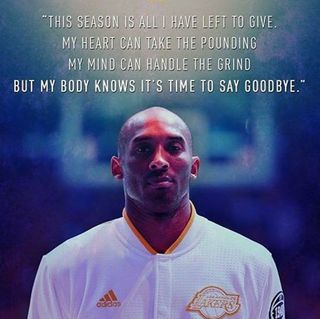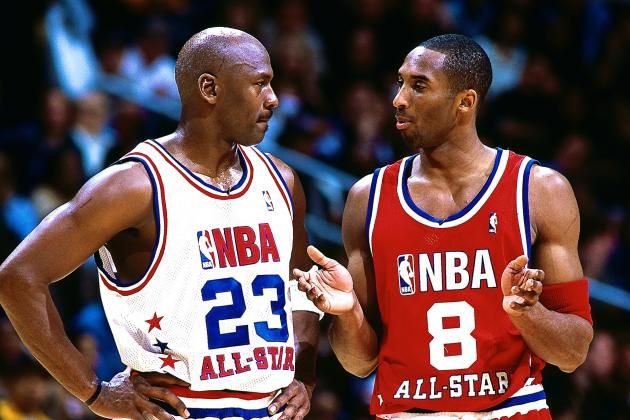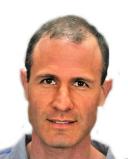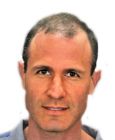Aging
Can Kobe Bryant Rebound From Retirement?
Retirement can be a psychological challenge, especially for sports superstars.
Posted March 16, 2016
Old age is a time for reflection. Old age can come sooner for professional athletes. Often with millions of dollars in the bank, coupled with time on your hands, this presents a psychological challenge during retirement: how to stay busy and fulfilled with a much different lifestyle?
--
In the case of professional athletes, old age might come before you turn 40. Kobe Bryant entered the professional world of the National Basketball Association as a young man, entering straight from high school at the age of 17 (his parents had to cosign his first contract with the Lakers, as he was not yet 18 at the time). Now at the age of 37, he is retiring from the NBA and the life of a professional basketball player. What is a sports superstar to do? Often with millions of dollars in the bank, and some time on your hands, this presents a psychological challenge: how to stay busy and fulfilled with a much different lifestyle?
Early retirement in the sports world is not uncommon. For example, the famous boxer Rocky Marciano retired at the ripe age of 32, as the undefeated heavyweight boxing champ with a 49-0 record. The great Dodger pitcher Sandy Koufax retired at 30 after compiling an amazing 27-6 win-loss record in 1966. Magic Johnson stunned the basketball world when he initially retired after contracting HIV at age 32.

Kobe still shows he has an NBA game, despite nagging injuries that are typical of a grueling and travel-laden NBA season. Why not keep playing until your body cannot handle it anymore? While the physical aspects might make retirement an obvious and necessary option, the psychological aspects of choosing when to retire can be challenging [1]. Lingering longer might not be healthy for both your mind and your body (see Brett Favre) because you just can’t get away from the one thing that has driven you since you were a little kid: the desire for competition and to be the best. So, sometimes the best career can lead to the hardest transitions.
Just ask Michael Jordan. One of the few things Jordan was bad at was successfully retiring from the NBA. He tried in October 1993, at the age 30, after winning three straight NBA titles, three straight NBA Finals MVP awards and seven straight NBA scoring titles. He tried minor league baseball, only to return to the NBA a year and a half later, famously announcing, “I’m Back”. Then the second retirement came (and soon went): After winning 3 more championships, Jordan retired for the second time on January 13, 1999. Jordan then returned to the NBA not as a superstar player, but as part owner and President of Basketball Operations for the Washington Wizards. This would lead to another return (after saying he was “99.9% sure” he would not return as a player), this time with the Wizards. Perhaps due to his broader perspective in older age, and also to perhaps justify his return, he decided to donate his salary to relief efforts for the victims of the September 11, 2001 attacks. Jordan eventually retired again, to play golf and take on various front office jobs with the Wizards, though he was eventually relieved of his duties. Now he is part owner of the Charlotte Hornets, plays golf, and is married again, with twin daughters.

The bigger they come, the harder they fall. Again, Jordan, in his message to Kobe, implied that he may never again find anything quite as fulfilling and competitive as playing basketball at the NBA level. He congratulated Bryant on an outstanding career, but warned him that he'll have to find something to keep himself busy once his playing days are over. "I'm pretty sure you're just like me," Jordan said. "You're gonna have to find other ways to utilize that competitive drive."
It is hard to walk away from a game that you love. John Wooden retired from coaching at age 65, after winning his 10th NCAA championship, ending on a high note [2]. However, one of Kobe’s mentors, legendary coach Phil Jackson, has a track record of “unsuccessful” retirements, so what is Kobe to do?! I’m sure Kobe wanted to end on a higher note than a Lakers losing season; so maybe there will be a comeback. So what will Kobe Bryant do? How does a superstar now turn to his emotional side, and think about the future? Consistent with Socioemotional Selectivity Theory [3], which suggests that as we age we become more aware of our own emotions, as well as other people’s emotional well-being. Kobe Bryant now emphasizes the need to understand compassion and empathy, especially as a teammate (something some may say he struggled with during his career. Just ask his former teammate Rick Fox, who once proclaimed to Kobe: “Kobe, we just want to feel like you need us,'"
Older people can be role models. How would Kobe offer words of wisdom to a younger self? Asked if he could go back in time and offer advice to himself as a rookie, what would he say? Kobe said in an interview, "It's hard to tell somebody -- a player at that age -- to understand compassion and empathy, but that would be my advice," Bryant said this season, "It tends to come with time."
Can we speculate what is in the future for Kobe? A Jordan-esque “I’m Back”, perhaps next season with the Knicks and mentor Phil Jackson? Or an opportunity to play overseas? Or future owner of the Lakers? And maybe an appearance on Dancing with the Stars? What will keep Kobe fit and mentally sharp in his old age? What hobbies might he pick up? Some older adults try to learn a second language, and research shows this can enhance cognitive function and even delay the onset of Alzheimer’s disease [4], as well as physical activity. Kobe already possesses the ability to converse in a second language (he learned Italian as a child, living in Italy, he also conducts interviews in Spanish). My bet is Kobe will relax for a few months, but then seek to expand his horizons. Perhaps he may return to Italy, give his children some exposure to a new language and different culture like he had as a child, and he may mentor players (and even play) in an Italian league. Then he might return to the NBA, in some capacity, for his next adventure.
References
[1] Shultz, K. S., & Wang, M. (2011). Psychological perspectives on the changing nature of retirement. American Psychologist, 66, 170-179.
[2] Castel, A. D. (2009). Memory and successful aging: A conversation with Coach John Wooden. Association for Psychological Science Observer, 22, 13-15.
[3] Carstensen, L. L., Fung, H. H., & Charles, S. T. (2003). Socioemotional selectivity theory and the regulation of emotion in the second half of life. Motivation and Emotion, 27, 103-123.
[4] Craik, F. I. M., Bialystok, E., & Freedman, M. (2010). Delaying the onset of Alzheimer disease: Bilingualism as a form of cognitive reserve. Neurology, 75, 1726-1729.




